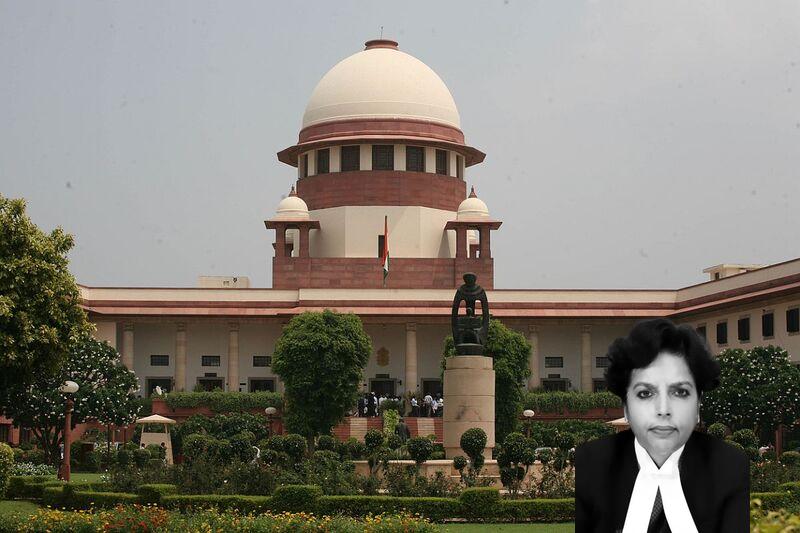As a consequence of the impugned judgment, a Letter of Intent which was issued by Bharat Heavy Electricals Limited, in favour of the appellant has been quashed and BHEL has been directed to consider the bid submitted by the first respondent in terms of a Notice Inviting Tenders dated 24 June 2022. Bottom ash handling system comprising jet pump system in conjunction with water impounded bottom ash hopper designed from minimum 50 TPH (on dry ash basis) capacity or more for pulverized coal fired boilers. Clause 01.01.02 stipulated that a bidder who is a supplier of a bulk material handling system, but does not fulfill the requirements under clause 01.01.01 could also participate, subject to certain stipulations.
Bulk material handling system, comprising of bell conveyors having a minimum design capacity of 800 TPH The systems mentioned at 01.01.02 (a) or (b) above should be in successful operation in at least two (2) plants for at least two (2) years as on date of submission of bid and should have been installed for pulverized coal fired boiler units in India/abroad generating not less than 40 TPH of Ash per boiler. In such a case, the Bidder shall be required to furnish Agreement of Support jointly executed by the Bidder and the collaborator/Associate for successful performance of the HCSD system as per the format (Annexure-B) enclosed along with bid. Clause 01.01.03 then provided as follows: “The activity of design and engineering under 01.01.01 (a), (b) and (c) should have been carried out by the bidder and not through any external design agency/agencies. Also, BHEL/Customer shall approve manufacturing facilities of the equipment of the vendor’s self- manufacturing items in case the items are being manufactured by bidder as per collaborator(s)/associate(s) design and manufacturing drawing.” 7.
Among them, if the bidder had entered into a consortium agreement in order to meet the requirements of clause 01.01.01 as permitted by clause 01.01.02, a copy of the consortium agreement was to be submitted along with the tender documents. The Order, which is described as “Public Procurement No 1” specified a requirement of registration in the following terms: “Requirement of registration 1 Any bidder from a country which shares a land border with India will be eligible to bid in any procurement whether of goods, services (including consultancy services and non- consultancy services) or works (including turnkey projects) only if the bidder is registered with the Competent Authority, specified in Annex I. Clause (6) of the Order defined a “bidder” as follows: “Bidder” for the purpose of this Order (including the term ‘tenderer’, ‘consultant’, ‘vendor’ or ‘service provider’ in certain contexts) means any person or firm or company, including any member of a consortium or joint venture (that is an association of several persons, or firms or companies), every artificial juridical person not falling in any of the descriptions of bidders stated hereinbefore, including any agency, branch or office controlled by such person, participating in a procurement process.” 11. The first respondent instituted a writ petition under Article 226 of the Constitution before the High Court of Karnataka contending that the award of the contract to the appellant was in breach of the conditions which were imposed in the Order dated 23 July 2020 of the Union Ministry of Finance. The Single Judge held that (i) Entering into a consortium agreement was permissible under the terms of the tender; (ii) The submission of the tender by the appellant, along with the copy of the agreement, was proper; (iii) On the issue of mandatory registration under the Public Procurement Order, a clarification dated 8 February 2021 stated that a bidder can procure raw material, as opposed to finished goods, from an entity such as the fourth respondent even if the latter was not registered with the competent authority; (iv) Since the appellant was not even procuring raw materials but only sought support for design, erection and commissioning requirements, the bid did not violate the procurement order; (v) The Court’s scrutiny was limited to the decision-making process; (vi) The financial bid of the appellant was Rs 58 crores lower in value than the financial bid submitted by the first respondent; and (vii) The decision-making process was not arbitrary and did not merit interference, in line with the principle of limited judicial scrutiny of discretion vested in a tendering authority. The Division Bench of the High Court reversed the decision of the Single Judge and allowed the writ appeal. The appellant on the other hand, maintained that (i) The agreement was not a consortium agreement in the technical sense (clause 7 of the pre-qualification requirements); (ii) It was called a consortium agreement only because it was styled in accordance with the template for a consortium agreement, appended to the tender document; (iii) If it were actually a consortium agreement in the strict sense, the Chinese company would have contributed to the bid and had a share in the profits as well; (iv) the nature of the agreement was more like a service contract than like a consortium agreement strictly speaking; (v) The Chinese company was a mere associate who was providing services in relation to the designs under the terms of the agreement; it did not contribute to the bid and was not entitled to any profits that accrued in favor of the appellant; (vi) The bid was submitted and awarded in favour of the appellant as a standalone bidder and not as a part of a bidding consortium; and (vii) Considering the nature of the contract and the Chinese company’s limited role, the non-registration under the Procurement Order was inconsequential. The Division Bench observed that (i) The agreement between the appellant and the Chinese Company is an undertaking to the tendering authority as to the due performance of the contract; (ii) The agreement is central to the appellant’s bid and is thus a consortium agreement; (iii) The bid was thus made on behalf of the bidding consortium; (iv) According to the Single Judge, the requirement of registration was not applicable in view of the clarification by the subsequent Office Memorandum dated 23 July 2020; this subsequent clarification applied in respect of import of raw material and whether the goods procured would be considered raw material or finished goods was relevant only after the award of the contract; (v) The requirement of mandatory registration had not been done away with by the clarification contained in the Office Memorandum dated 23 July 2020; (vi) The Chinese company, as a part of the bidding consortium was required to register in the absence of which the bidding consortium was ineligible to participate in the tender process; and (vii) BHEL, in awarding the tender, had overlooked this violation and wrongly based its decision only on the financial bid. Besides this appeal which has been filed by the successful party to whom the contract was awarded by BHEL, a companion Special Leave Petition has been filed before this Court by BHEL and by the Telangana State Power Generation Company Limited. This clause stipulates that a bidder which is a supplier of bulk material handling systems, but does not meet the requirements under clause 01.01.01 in part or in full, could also participate provided such a bidder had executed at least the systems design, engineering, manufacture, supply, erection and commissioning of projects of the nature described in either (a) or (b). Clause 01.01.03 contains certain stipulations in regard to the activity of design and engineering under clause 01.01.01. The issue which fell for determination before the High Court was whether the bid submitted by the appellant was liable to be rejected on the ground that the Chinese company with whom it had entered into a consortium agreement was not registered with the competent authority in terms of the Public Procurement Order dated 23 July 2020.
The submissions which have been urged on behalf of the appellant are that: (i) The appellant was at all material times the sole bidder to whom a LoI was awarded by BHEL on 29 September 2022; (ii) There was no bidding consortium within the meaning of clause 7.2 of the pre- qualification requirements; (iii) The Chinese company with whom a consortium agreement was entered into by the appellant had no equity in the project which was being contracted for by the appellant; (iv) The Procurement Order dated 23 July 2020 with the clarification which was issued thereafter on 8 February 2021 requires only a registration and does not impose a disqualification; and (v) As a matter of public interest, the High Court ought not to have interfered consistently with settled legal principles since a large part of the work has already been completed. These submissions have been opposed on behalf of the respondents who have urged that: (i) The appellant did not qualify under clause 01.01.01 and could bid for the project only in pursuance of the experience of the Chinese entity with whom a collaboration agreement was entered into; (ii) The consortium agreement with the Chinese company specifically stated that the appellant did not qualify in terms of clause 01.01.01; (iii) The definition of the expression ‘bidder’ in the OM dated 23 July 2020 is broad enough so as to encompass a consortium agreement; (iv) The above position would be amplified by the responses submitted by the appellant in the course of the queries that were raised in the tendering process; (v) Clause 52 of the Special Conditions of Contract specifically emphasizes the conditions that were set out in the OM; (vi) The responses which were furnished by the appellant to the pre- qualification requirements contain a specific statement that the appellant had entered into a consortium agreement with the Chinese company; and (vii) Likewise, the Chinese company in its letter dated 18 July 2023 clarified that it had entered into a consortium agreement in pursuance of which it was undertaking joint and several liability towards BHEL. During the course of the hearing, it has been submitted on behalf of the first respondent that the first respondent would be willing to match the bid which was submitted by the appellant and if the contract is awarded to it in pursuance of the impugned judgment of the Division Bench of the High Court, it would take over the contract from the stage where it was left by the appellant. Clause 11 of the Order contains the following provision in relation to the sub- contracting of works contracts in the following terms: “In works contracts, including turnkey contracts, contractors shall not be allowed to sub-contract works to any contractor from a country which shares a land border with India unless such contractor is registered with the Competent Authority. The above requirement in clause 11 was subsequently clarified in the OM of the Union Ministry of Finance dated 8 February 2021 so as to exclude from its ambit the procurement of goods and services. According to the appellant, the relaxation which was granted on 8 February 2021 would enure to its benefit.
The agreement between the appellant and the Chinese company does not fall within the description of clause 7.2 since the Chinese company has no ownership or equity in the project, no MoU as required by the clause was executed between the appellant and the Chinese entity and it has no contribution in the bid. In this context, it has been submitted on behalf of the appellant that out of a total contract value of Rs 378.64 crores in the contract between BHEL and the appellant, the Chinese sub-contract for carrying out design and other related aspects of the Ash Handling Plant is to the extent of US dollars 95,000 corresponding approximately to Rs 78 lakhs, which is only 0.2% of the entire contract value. Further, in accordance with the pre- qualification requirements, the appellant’s manufacturing facilities were duly examined and approved by BHEL, and the bid was approved after due consideration and satisfaction of BHEL, the tendering authority. This Court being the guardian of fundamental rights Is duty- bound to Interfere when there Is arbitrariness, irrationality, mala fides, and bias However, this Court has cautioned time and again that courts should exercise a lot of restraint while exercising their powers of judicial review In contractual or commercial matters This Court Is normally loathe to Interfere In contractual matters unless a clear-cut case of arbitrariness or mala fides or bias or Irrationality Is made out One must remember that today many public sector undertakings compete with the private industry The contracts entered Into between private parties are not subject to scrutiny under writ jurisdiction. Courts must also not Interfere where such interference will cause unnecessary loss to the public exchequer. Even in a writ appeal, it is well settled that the Division Bench would ordinarily not interfere with the judgment of a Single Judge unless it suffers from perversity or error. Though during the course of the hearing, the first respondent has made a statement through senior counsel that it would match the bid which was submitted by the appellant, there can be no gainsaying the fact that this will cause insuperable difficulties in the implementation of the contract since the work under the contract has progressed. The judgment of the Single Judge dismissing the writ petition shall stand restored.



